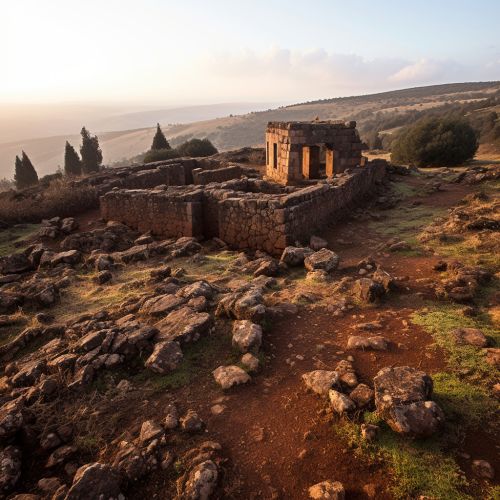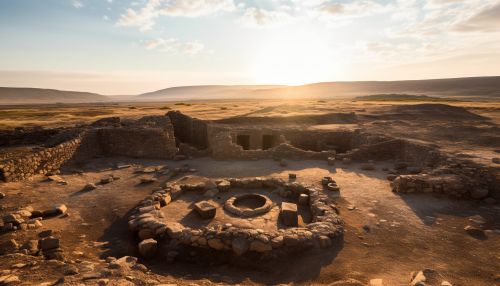Canaanites
Origins and Early History
The Canaanites were a group of ancient people who lived in the land of Canaan, an area which according to ancient texts may have included parts of modern-day Israel, Palestine, Lebanon, Syria and Jordan. The Canaanites are mentioned extensively in the Hebrew Scriptures, as well as in other ancient texts such as the Amarna letters, and they played a significant role in the history of the ancient Near East.


The origins of the Canaanites are somewhat obscure, but it is generally believed that they emerged in the early second millennium BCE, during the Middle Bronze Age. They are thought to have been a Semitic people, related to other groups such as the Amorites and the early Phoenicians, who also inhabited the eastern Mediterranean region during this period.
Culture and Society
Canaanite society was characterized by a high degree of urbanization, with numerous city-states such as Ugarit, Sidon, and Tyre emerging during the Late Bronze Age. These cities were often fortified and featured large public buildings, including palaces and temples, indicating a high level of social and political complexity.
The Canaanites were known for their advanced metallurgy, producing weapons and tools of bronze, and later iron, and they were also skilled in other crafts such as pottery and textile production. They developed a system of writing, known as the Canaanite alphabet, which was one of the earliest alphabetic scripts and was the precursor to the Phoenician alphabet and, ultimately, the Greek and Latin alphabets.
Religion played a central role in Canaanite society, and their pantheon included a number of gods and goddesses, such as Baal, Anat, and El, who were worshipped in temples and through public and private rituals. The Canaanites also practiced ancestor worship and believed in an afterlife.
Relations with Other Peoples
The Canaanites had extensive trade networks and diplomatic relations with other peoples of the ancient Near East, including the Egyptians, the Hittites, and the Assyrians. They were also in contact with the Aegean civilizations, such as the Mycenaeans and the Minoans, and Canaanite goods have been found in archaeological sites across the Mediterranean.
However, the Canaanites also had a history of conflict with their neighbors. The Hebrew Bible describes the Israelites' conquest of Canaan and their struggles with the Canaanite peoples, and other texts mention conflicts with the Egyptians and the Sea Peoples.
Decline and Legacy
The Canaanite city-states began to decline in the late second millennium BCE, due to a combination of internal factors and external pressures, including invasions by the Sea Peoples and the Israelites. By the early first millennium BCE, many of the Canaanite cities had been destroyed or abandoned, and the Canaanite culture was gradually absorbed by the emerging Israelite and Phoenician civilizations.
Despite their decline, the Canaanites left a lasting legacy in the region. Their language and script were adopted by the Phoenicians, who spread them across the Mediterranean, and their religious beliefs influenced the Israelites and other Semitic peoples. The Canaanites are also remembered in the Hebrew Bible and in other ancient texts, and their cities and artifacts continue to be studied by archaeologists and historians.
